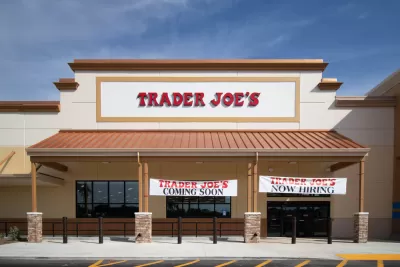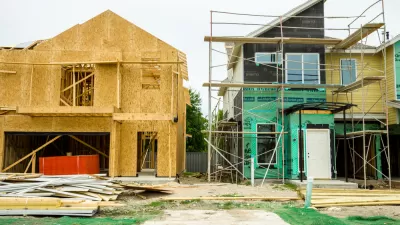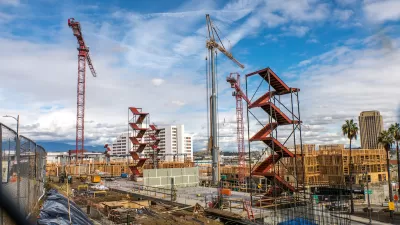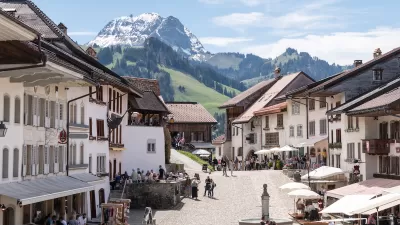The flawed logic behind an all-too-common planning misconception.

Writing in Strong Towns, Daniel Herriges warns against a common style of public comment that fails to grasp the realities of how development decisions are made. Herriges illustrates this genre of uninformed, self-serving comments as “The city should put a Trader Joe's there.”
As Herriges explains, “The reason the city can’t put a Trader Joe's there is because the city doesn't make that decision at all.” The process involves many more parties, such as the landowner and Trader Joe’s. And while rezoning processes often garner public attention, “it’s very rare that a local government actively recruits a specific business to occupy a site, let alone when that site itself is private property.”
While such complaints can largely be attributed to “simple ignorance,” Herriges writes, “there’s something deeper going on: a flaw in the basic mental model that people use to describe how their neighborhood takes shape.”
For Herriges, the problem rests in part on the assumption that there is a master planner or designer making decisions about how a city grows, even if that planner is some vague version of “the community” or “the city.” But most decisions are made by many individuals and entities with often disparate interests.
Ultimately, Herriges encourages people invested in the future of their communities to think about the specifics of what “we” and “they” mean in the urban planning and development context, what concrete outcomes they want to see, and how decisions about those outcomes are actually made.
FULL STORY: “The City Should Put a Trader Joe’s There” (and Other Muddled Thinking About Development)

Planetizen Federal Action Tracker
A weekly monitor of how Trump’s orders and actions are impacting planners and planning in America.

Congressman Proposes Bill to Rename DC Metro “Trump Train”
The Make Autorail Great Again Act would withhold federal funding to the system until the Washington Metropolitan Area Transit Authority (WMATA), rebrands as the Washington Metropolitan Authority for Greater Access (WMAGA).

DARTSpace Platform Streamlines Dallas TOD Application Process
The Dallas transit agency hopes a shorter permitting timeline will boost transit-oriented development around rail stations.

Renters Now Outnumber Homeowners in Over 200 US Suburbs
High housing costs in city centers and the new-found flexibility offered by remote work are pushing more renters to suburban areas.

The Tiny, Adorable $7,000 Car Turning Japan Onto EVs
The single seat Mibot charges from a regular plug as quickly as an iPad, and is about half the price of an average EV.

Supreme Court Ruling in Pipeline Case Guts Federal Environmental Law
The decision limits the scope of a federal law that mandates extensive environmental impact reviews of energy, infrastructure, and transportation projects.
Urban Design for Planners 1: Software Tools
This six-course series explores essential urban design concepts using open source software and equips planners with the tools they need to participate fully in the urban design process.
Planning for Universal Design
Learn the tools for implementing Universal Design in planning regulations.
Roanoke Valley-Alleghany Regional Commission
City of Mt Shasta
City of Camden Redevelopment Agency
City of Astoria
Transportation Research & Education Center (TREC) at Portland State University
US High Speed Rail Association
City of Camden Redevelopment Agency
Municipality of Princeton (NJ)





























